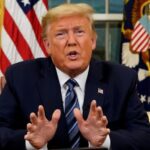New Delhi — 272 distinguished and senior citizens of the country — including 16 retired judges, 123 former bureaucrats (including 14 former ambassadors), and 133 retired military officers — have issued an open letter against Rahul Gandhi and the Congress Party.
Regarding allegations of vote rigging against the Election Commission, 272 retired judges and bureaucrats from across the country issued an open letter on Wednesday. It criticizes Leader of Opposition in the Lok Sabha Rahul Gandhi and the Congress Party. The letter contains signatures from 16 former judges, 123 retired bureaucrats (including 14 former ambassadors), and 133 retired military officers.
In the open letter, these retired judges and bureaucrats have alleged that the Congress is continuously trying to weaken the credibility of constitutional institutions like the Election Commission. This spreads unnecessary distrust in the country’s democratic system.
The letter also stated that the Election Commission is the most important pillar of India’s electoral system. Repeatedly questioning it weakens public trust and harms democracy. Political differences are necessary, but continuously making allegations against constitutional institutions is against national interest.
In fact, Rahul Gandhi has so far held three press conferences accusing the Election Commission of vote rigging. He had called the Commission the “B-team” of the Modi government. He accused the BJP of colluding in vote rigging.
Main Allegations:
-
This group alleges that Rahul Gandhi is trying to discredit the credibility of constitutional institutions like the Election Commission (EC) through his campaign of “vote theft” (voter fraud).
- The letter states that Rahul Gandhi’s allegations are “provocative but without evidence” and that this appears to be merely part of a political strategy, rather than the result of any actual factual investigation.
-
According to them, Gandhi is presenting his allegations as “venomous rhetoric” that attacks institutions foundational to democracy.
- They have also alleged that opposition parties exhibit similar “selective outrage” — meaning they remain silent about the Commission when election results favor them, but blame the Commission when results are unfavorable.
- The letter also urges that the Election Commission maintain its transparency and defend itself through legal and constitutional means to protect the fundamental institutions of democracy.
New Delhi
New Delhi is the capital of India, officially inaugurated in 1931 to serve as the new administrative center of British India, replacing Calcutta. Designed by architects Edwin Lutyens and Herbert Baker, its grand, tree-lined boulevards and government buildings, such as the Rashtrapati Bhavan and India Gate, reflect a unique blend of British and Indian architectural styles. Today, it functions as the political heart of the world’s largest democracy, housing the Parliament, government ministries, and numerous national monuments.
Election Commission
An Election Commission is an independent governmental body responsible for overseeing and administering the democratic electoral process in a country. Its history is tied to the development of modern democracies, emerging to ensure free and fair elections by managing voter registration, conducting polls, and enforcing electoral laws. The core function of such a commission is to uphold the integrity of elections and sustain public confidence in the democratic system.
Lok Sabha
The Lok Sabha is the lower house of India’s bicameral Parliament, forming a key component of the country’s democratic framework. It was established with the adoption of the Indian Constitution on January 26, 1950, succeeding the Constituent Assembly. Members are directly elected by the people of India, and the house is responsible for making laws and overseeing the government.
Congress Party
The Indian National Congress (INC), commonly known as the Congress Party, is a major political organization in India, not a physical place. Founded in 1885, it played a pivotal role in the Indian independence movement, leading the country’s struggle for freedom from British rule under the leadership of figures like Mahatma Gandhi and Jawaharlal Nehru. After independence in 1947, it became the dominant political party, governing India for much of its history and shaping its modern democratic institutions.
BJP
“BJP” stands for the Bharatiya Janata Party, which is a major political party in India, not a physical place or cultural site. It was founded in 1980 and has its ideological roots in the Rashtriya Swayamsevak Sangh (RSS), promoting Hindu nationalist principles. The party has grown to become one of India’s two dominant political parties, having formed the national government multiple times.
Modi government
The Modi government refers to the administration led by Prime Minister Narendra Modi of the Bharatiya Janata Party (BJP), which first came to power in India in 2014. Its political history is rooted in the BJP’s platform of Hindu nationalism and economic development, marking a significant rightward shift in Indian politics. The government has implemented major policy initiatives, such as the Goods and Services Tax (GST), while also facing both domestic and international scrutiny over its social and economic agenda.




